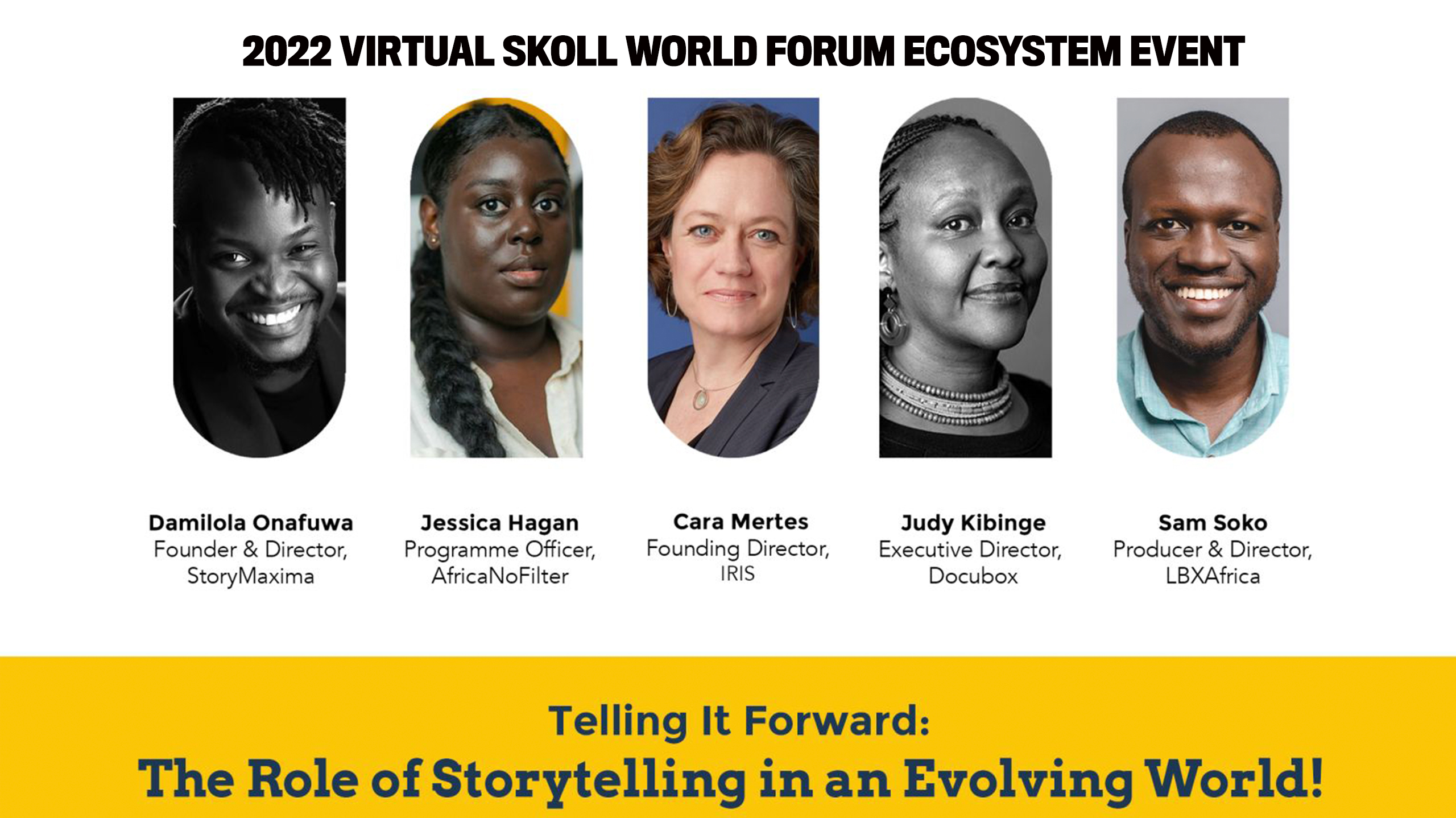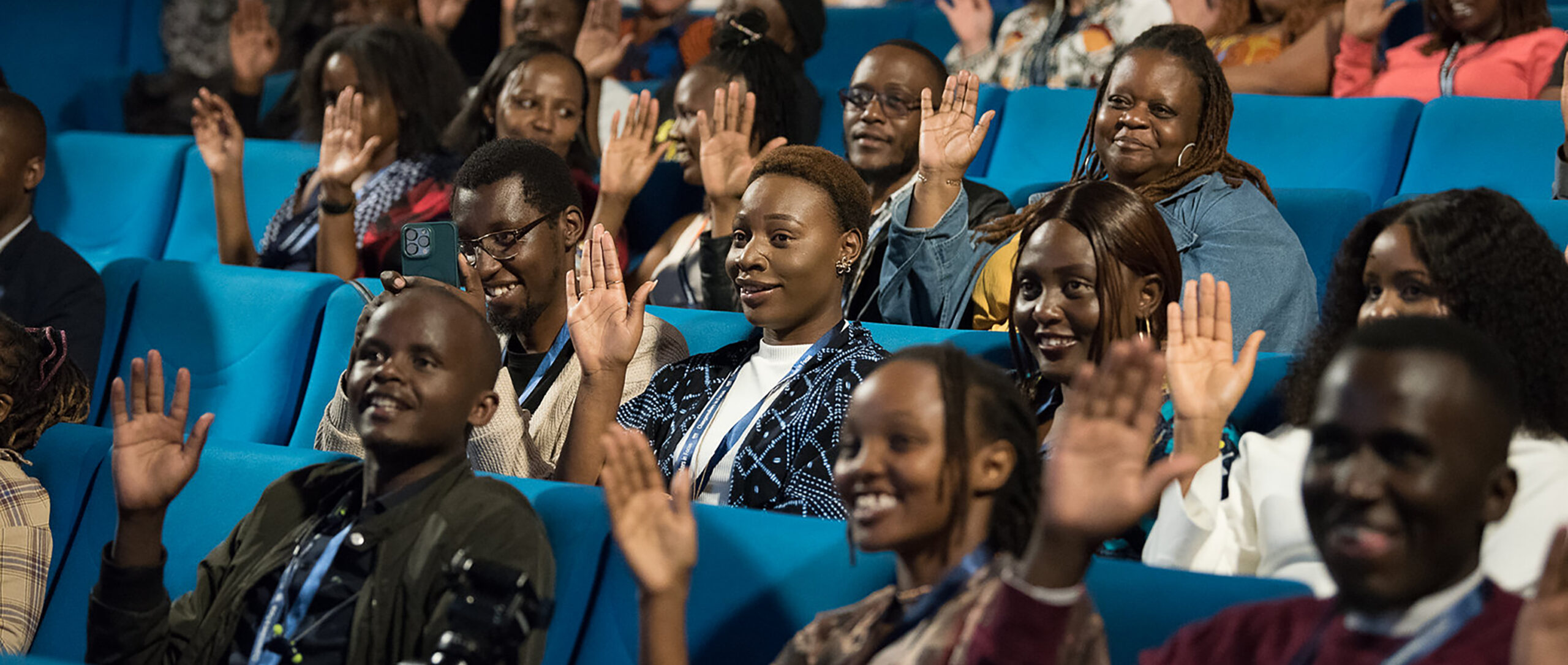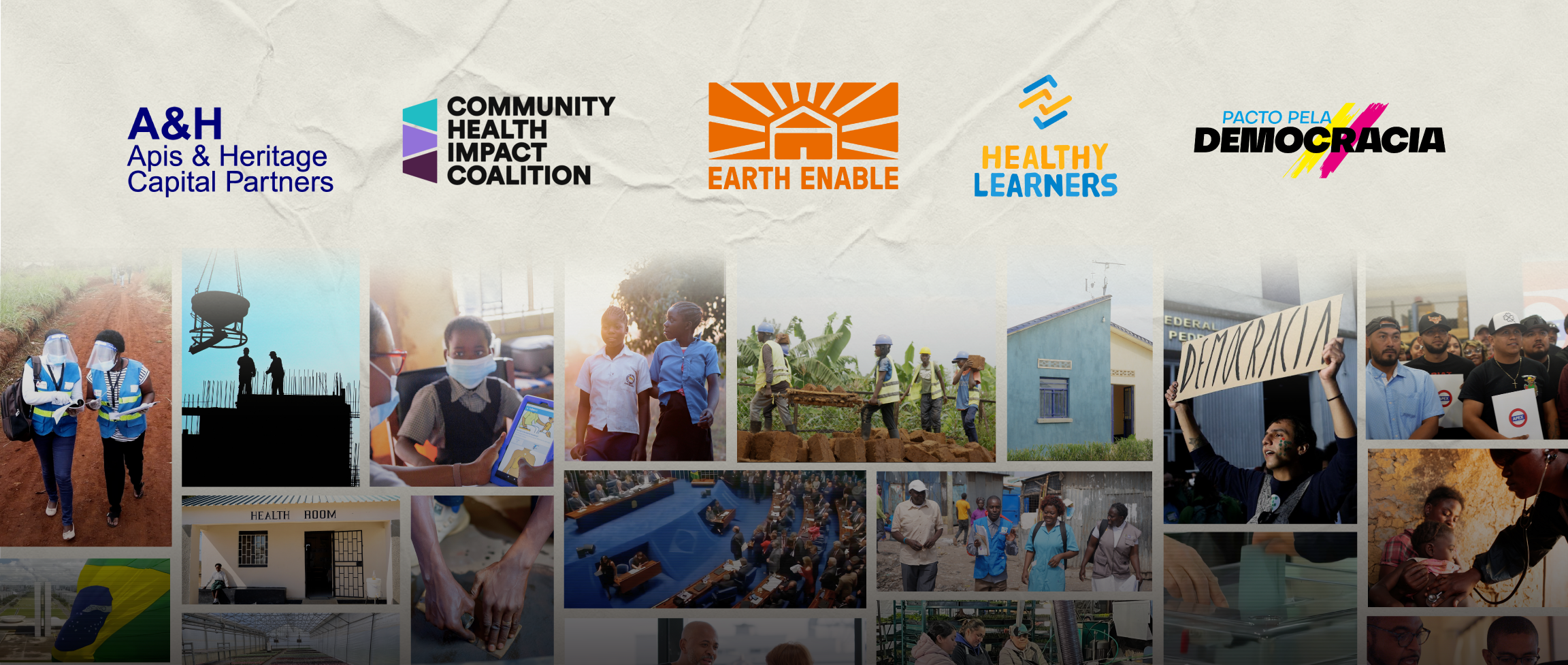Telling It Forward: The Role of Storytelling in an Evolving World
At StoryMaxima, we believe in the power of visual storytelling as a source of public influence and a force for social change. We help organizations tell their stories of impact by providing quality photography, filmmaking, and other visual communication services.
As part of 2022 Skoll World Forum, we hosted an Ecosystem Event entitled “Telling It Forward – The Role of Storytelling in an Evolving World.” Our conversation explored approaches for organizations to get their voices heard on the global scene, the role of proximate, Africa-based storytelling to steer the world toward a collective desired future, and how technology can be leveraged to advance storytelling.
As a Skoll World Forum fellow and the Founder of StoryMaxima, I hosted the event with a diverse panel of speakers including Judy Kibinge, Executive Director of Docubox, Cara Mertes, Founding Director of International Resource for Impact and Storytelling (IRIS), Jess Hagen, Program Officer at AfricaNoFilter, and Sam Soko, award-winning Kenyan Filmmaker, Producer and Director at LBXAfrica.
The main aim of the event was to create a space to answer critical questions on how filmmakers and storytellers can attract resources and expand their work, and how organizations can reach their goals with the help of the power of storytelling.
Below are some highlights from our conversation.
Damilola Onafuwa: How do you see the role of storytelling in the world that we live in today and how fast it is changing?
Jessica Hagan: Storytelling is so important for sharing perspectives, stories, experiences, and cultures. In a world where the privilege of traveling is not afforded to everyone, storytelling allows us to connect and expand our imaginations. It helps us understand other people’s narratives and journeys.
Cara Mertes: A quote by Ursula Le Guin, “Story is our only boat for sailing the river of time” speaks to what I think is very important about storytelling. As humans, we are conduits for stories across time and across space. Those stories last generations and this is what make us human. Storytelling has brought our civilizations, our communities, us as individuals, organized us, en masse, together around values, beliefs. Stories about economies, capitalism, religions are organizing principles and ways that humans get aligned. Storytelling is all about building power. At IRIS, we’re thinking about recentering the story at the individual and community levels of those most impacted damaging stories, damaging narratives.’’
Damilola Onafuwa: How do you think we can help amplify minority voices with storytelling?
Judy Kibinge: It is sometimes difficult for people to understand what it is like to be a minority voice. Amplification starts with us. We need an army of storytellers. It is really important for homegrown local organizations like DocuBox to stand forth as Africans and minority voices to say this is important to us. We need to fight to be at powerful tables where we are able to tell our stories with all the history and brilliance that we have. We need the support of different organizations to help us tell our stories. It requires a massive collaborative effort and our voices matter.’’
Damilola Onafuwa: Where should African storytellers be looking for funds?
Cara Mertes: Change your mindset from one of rejection and acceptance to one of circulation. Even if you apply and get rejected, what you have done is put your stories into circulation among decision makers. Decision makers never have enough money to fund everything that should be or could be funded. There are always limits to resources. Sometimes the money is in other places, like in individual conversations. Someone or an organization that has a shared interest as you whose purpose is to create some movement on a particular issue. And if your story aligns with their goals, you may be able to start a conversation out whether or not your film or your project can be useful in that context.
Jessica Hagan: Africa No Filter is primarily a grant making organization. We give grants to storytellers both on and around the continent that are pushing the mission of shifting narratives about Africa and Africans. Part of the problems that a lot of filmmakers face is that they come up with a project, go over budget, and they don’t have the money to complete or move into post-production. We have decided to create this grant of 10, 000 – 20,000 dollars that would allow for filmmakers who are in the process and just need the last push to get their stories out there.
One thing we’ve been really passionate about in Africa No Filter is not giving grants to people who are already in the grants circuit. We’re really intentional about finding emerging, underground creatives who are doing the work and don’t have the connections to the big organizations—75 percent of our grantees are first time grantees.’’
Damilola Onafuwa: What barriers do you identify to the use of local storytelling in global advocacy and fundraising?
Judy Kibinge: Sometimes, you would imagine that the barriers would purely be the financing but often, it is the knowledge, the contacts, the network, and the community. When you get together as a community, the chances are the more excellence comes out of it. I would encourage filmmakers to get together and form communities and do whatever we can to understand not just how to work it and do it locally but how to access knowledge on how it is working out there.’’
Damilola Onafuwa: How do you think we can use technology to advance the cause for storytelling?
Sam Soko: We have more and more filmmakers getting into low data accessibility content. Technology has helped to encourage research to grow accessibility. The number of people who can access content online in the African space is not high. The African continent is one of those places where there has to be a level of investment to build accessibility of content. If we can encourage a level of investment to make things like internet free, the world will not be ready for the kinds of stories that will come out of Africa. The thing about great accessibility is that African filmmakers and storytellers will finally get paid.’’
Damilola Onafuwa: The future can be so distant to so many people. How can storytelling help people imagine a future to work towards?
Jessica Hagan: I think we can make the future not look so distant when we look at how we handle what we have been created, where we take it, and how we give it the accolades that it deserves. So it is not just about creating great content which opens your imagination and inspires you, but also focusing on how it is received by the society, the world.
Is it opening doors for new ways of telling stories? Is it challenging how stories are told now? Are we using that work to create new innovations about storytelling? That is the way to bring the future a bit closer. It puts storytellers at the forefront and shows how impactful storytellers can be in changing the ways that society does things.



